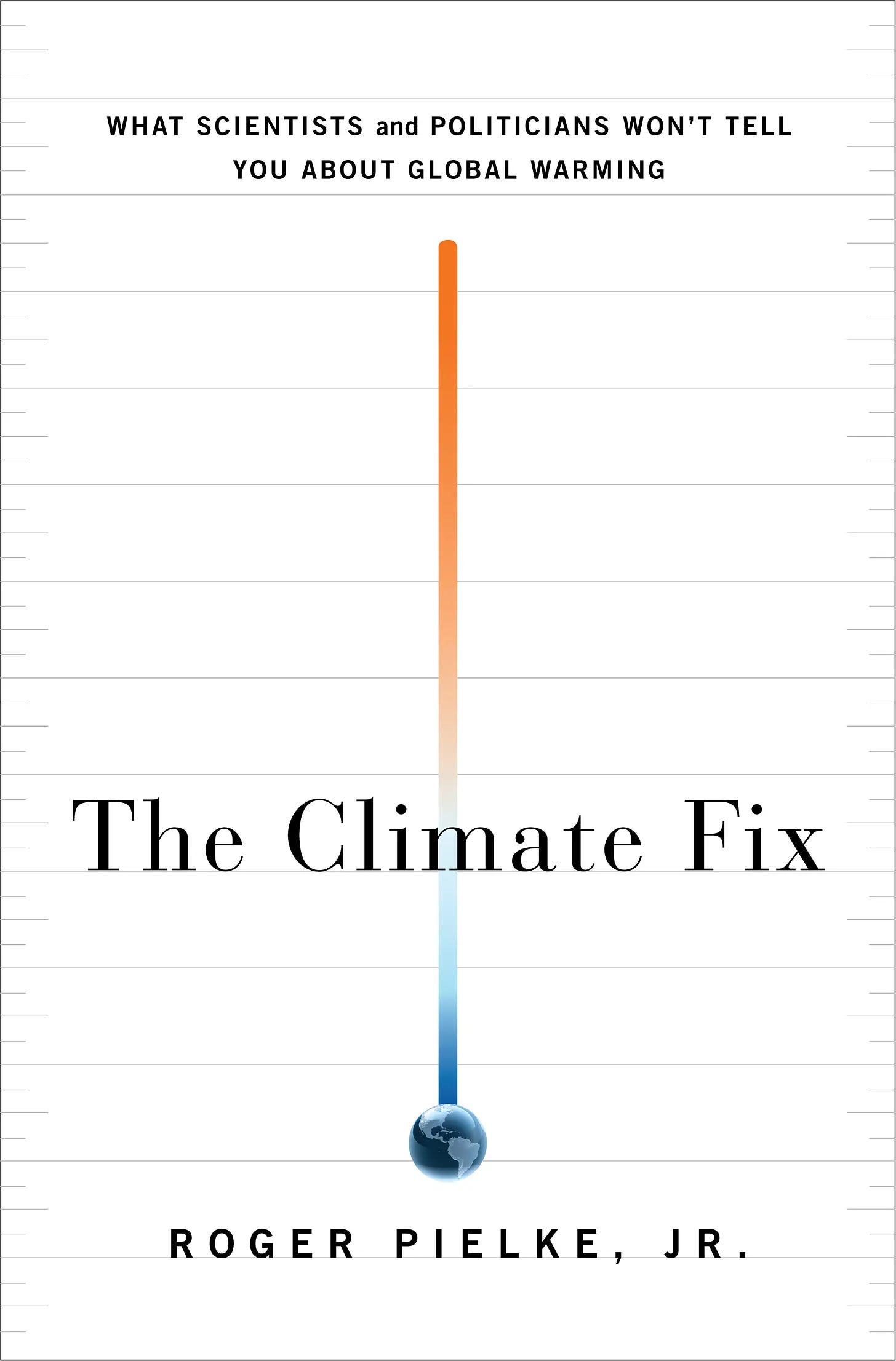Note: I’m dropping the “weekly memo” designations. Going forward, some posts are just for paid subscribers, most will remain free. Book chapters and articles will remain reserved for paid subscribers.
This post shares Chapter 2 of The Climate Fix and invites questions and comments. Paid subscribers can download Chapter 1 — Dinner Table Climate Science — here in PDF. Next month I share Chapter 3 which continues the analysis found in Chapter 2. Here is how the chapter starts, and below you can download a complete PDF.
The Climate Fix, Chapter 2, What We Know for Sure, But Just Ain’t So
The policy actions that are considered and ultimately are adopted in climate change are shaped profoundly by some very important and often unquestioned assumptions. Some very important aspects of such conventional wisdom are, to be absolutely direct, just plain wrong. It should be no surprise that if key assumptions that underlie policies on climate change are wrong, then it would go a long way toward explaining why it is that climate policies have been mired in gridlock, with no real prospects for getting unstuck.
One of Al Gore’s favorite sayings comes from Mark Twain: “It ain’t what you don’t know that gets you into trouble. It’s what you know for sure that just ain’t so.” He uses this saying to characterize some “inconvenient truths” about the science of climate change, which Gore argues that his political opponents have refused to accept, leading to the biggest inconvenient truth of all: we are going to have to change course if we are to deal with the challenge of climate change. But views on science aren’t the only inconvenient truths in the climate debate. If Gore’s political opponents are guilty of misunderstanding climate science, Gore and many others focused on motivating action on climate change are equally guilty of misunderstanding key elements of the policy context.
This chapter focuses on three important assumptions about decarbonizing the global economy that are firmly entrenched as conventional wisdom but, as Mark Twain would say, just ain’t so:
We lack political will.
We must trade off the economy for the environment.
We have all the technology we need.
This chapter argues that whatever else we believe about climate policies, being wrong on just these three assumptions has been sufficient to lead to continued policy failure. Until we correct what “just ain’t so” in key assumptions, policies focused on decarbonizing the economy will have virtually no hope for success.




